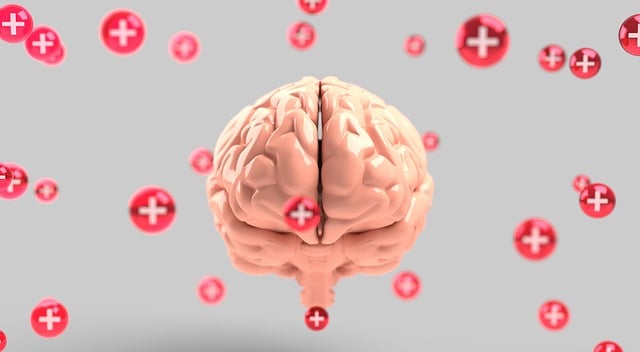Longmont Abuse Survivors Therapy (LAST) emphasizes culturally sensitive mental healthcare, addressing biases and stereotypes that may hinder trauma recovery. By incorporating cultural understanding, emotional intelligence, and mindfulness, LAST creates safe spaces for diverse clients to heal from abuse. This approach improves therapy outcomes, strengthens therapist-client relationships, and empowers survivors to rebuild their lives.
Mental healthcare’s evolving landscape demands a deep exploration of cultural sensitivity, especially in diverse communities. This article delves into the significance of cultural competency within mental health practices, highlighting its impact on therapy outcomes. We present a case study of the Longmont Abuse Survivors Therapy (LAST) program, demonstrating successful culturally responsive care for survivors of abuse. Additionally, it offers strategies to navigate cultural biases, promote understanding, and provide inclusive support to diverse populations, ensuring equitable access to mental healthcare services.
- Understanding Cultural Sensitivity: Why It Matters in Mental Healthcare
- The Impact of Cultural Biases and Stereotypes on Therapy Outcomes
- Longmont Abuse Survivors Therapy: A Case Study in Culturally Responsive Practice
- Strategies for Providing Culturally Sensitive Care to Diverse Populations
Understanding Cultural Sensitivity: Why It Matters in Mental Healthcare

Understanding Cultural Sensitivity is paramount in mental healthcare to ensure effective treatment and support for all clients, especially those from diverse backgrounds like Longmont Abuse Survivors Therapy. Our world is increasingly interconnected, with many individuals seeking help from mental health professionals who may have vastly different cultural perspectives. What’s more, many people carry the weight of traumatic experiences, such as abuse, which can significantly impact their emotional presentation and response to care.
Cultural sensitivity goes beyond mere awareness; it involves actively incorporating understanding and appreciation for diverse cultures into clinical practice. This is crucial in fostering trust between therapist and client. For example, a culturally sensitive approach recognizes that effective mood management techniques may differ across cultures. Similarly, emotional intelligence – the ability to perceive and understand emotions in oneself and others – plays a significant role in navigating these cultural nuances, creating safe spaces for individuals to heal and thrive.
The Impact of Cultural Biases and Stereotypes on Therapy Outcomes

Cultural biases and stereotypes can significantly impact therapy outcomes, especially when working with survivors of trauma from diverse backgrounds. In many cases, these biases are unconscious and rooted in broader societal perceptions, leading to misinformed assumptions about individuals’ experiences and behaviors. For instance, a therapist might unconsciously apply a one-size-fits-all approach when treating Longmont Abuse Survivors Therapy clients, assuming that all clients share similar trauma responses. However, cultural contexts shape how trauma manifests and is expressed, making this assumption dangerous. Stereotypes can lead to misdiagnoses or overlook unique aspects of a client’s life, history, and needs, hindering progress in therapy.
Mental health professionals must be vigilant in recognizing and challenging their own biases. Practicing mindfulness meditation can help therapists stay present and aware during sessions. Regular risk assessment for mental health professionals is crucial, as it enables them to identify personal biases and ensure culturally sensitive care. By acknowledging these influences, therapists can create safer spaces for clients from diverse backgrounds, fostering trust and enabling more effective healing processes.
Longmont Abuse Survivors Therapy: A Case Study in Culturally Responsive Practice

Longmont Abuse Survivors Therapy (LAST) serves as an inspiring case study showcasing how culturally responsive practices can transform mental healthcare. This therapy model was specifically designed to address the unique needs of survivors of abuse, recognizing that their experiences are deeply rooted in cultural contexts. By adopting a sensitive and tailored approach, LAST provides a safe space for individuals to process trauma, heal, and develop essential emotional regulation skills.
The program’s success lies in its commitment to understanding and respecting diverse cultural backgrounds. Therapists at LAST are trained to recognize and appreciate the influence of culture on mental wellness, ensuring that their interventions are sensitive and relevant to each client’s individual experience. This culturally sensitive practice has led to improved outcomes, fostering a deeper connection between therapists and survivors, and ultimately empowering them to rebuild their lives.
Strategies for Providing Culturally Sensitive Care to Diverse Populations

Providing culturally sensitive care is essential for establishing trust and effective treatment plans among diverse populations. At Longmont Abuse Survivors Therapy (LAST), we recognize that cultural background significantly influences an individual’s mental health experiences and expressions. To offer tailored support, therapists at LAST employ several strategies.
Firstly, they engage in active listening to understand the patient’s unique cultural context, beliefs, and values. This step is crucial for ensuring that therapeutic approaches align with the client’s identity. Additionally, incorporating culturally relevant resources, such as traditional healing practices or community support networks, enhances care. Educating both patients and therapists about different cultures fosters an environment where everyone feels respected and validated. By promoting empathy and open communication, LAST aims to help survivors develop effective coping skills (e.g., stress reduction methods, self-care practices) while also empowering them to share their stories without fear of judgment or misunderstanding.
In conclusion, cultural sensitivity is an indispensable aspect of mental healthcare practice. As evidenced by the case study on Longmont Abuse Survivors Therapy, culturally responsive approaches can significantly enhance therapeutic outcomes for diverse populations. By acknowledging and addressing cultural biases and stereotypes, healthcare providers can create safe and inclusive spaces that foster trust and understanding. Implementing strategies such as language accessibility, community engagement, and tailored interventions ensures that care is not only sensitive but also effective, ultimately improving the well-being of individuals from all backgrounds.














